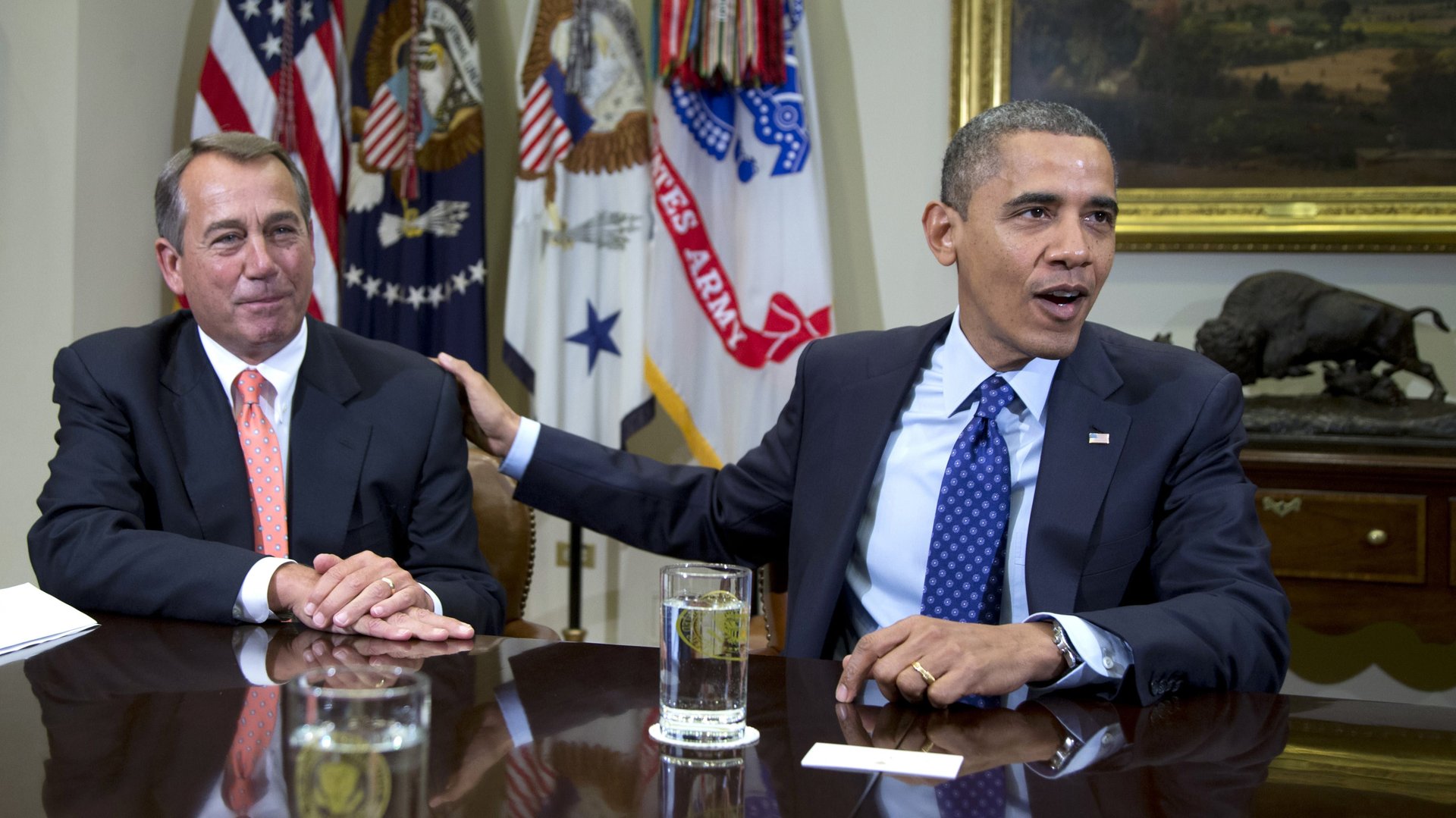Has Obama finally learned to make the big ask in US fiscal talks?
Here’s the WSJ with news of the budget deal the Obama administration offered Republicans today to avoid the fiscal cliff:


Here’s the WSJ with news of the budget deal the Obama administration offered Republicans today to avoid the fiscal cliff:
[A] $1.6 trillion tax increase, a $50 billion economic-stimulus program and new power to raise the federal debt limit without congressional approval, a broad set of demands Republicans viewed as a step back in talks to avoid looming tax increases and spending cuts.
The proposal, offered by Treasury Secretary Timothy Geithner as he made a round of meetings with congressional leaders in the Capitol Thursday, calls for increasing tax rates on incomes over $250,000, a one-year postponement of looming spending cuts in defense and domestic programs, and some $400 billion in savings over 10 years from Medicare and other entitlement programs.
(Emphasis added.) This is a notably ambitious proposal for the president because it’s full of things the opposition Republicans don’t like. That’s not just because of the large tax increases, but because it includes stimulus programs—job creation favorites like extensions to unemployment insurance and the payroll tax break—and gets rid of the debt ceiling, a sort of legislative appendix that serves no real purpose except the chance to occasionally cause a crisis.
Republicans balked, as well they might. But this proposal isn’t a bad sign, even if analysts like the Eurasia Group’s Sean West believe one of the great risks for failure in the negotiations is Democratic overreach.
In past negotiations, Obama has immediately offered concessions to the opposition, prompting them to demand even more—during the 2011 debt negotiations, his initial proposals were largely packages of spending cuts, with small revenue increases. When they were rejected during initial rounds of negotiations, the Democrats didn’t have much room to find a compromise that they could support.
This time, Obama is leading with an ask that not only is mostly tax increases; it also increases spending, even though it reduces spending on Medicare over time. This is unlikely to be what the final deal looks like—Republicans will want more spending cuts to discretionary spending now and social insurance programs later, but by including stimulus and setting a large revenue target, Obama has left plenty of room to work to the middle.
The wags on twitter aren’t surprised that Obama’s initial offer is for something he wants. But the president staking out a big position isn’t something often seen before—and it likely increases the odds that a deal actually gets done.